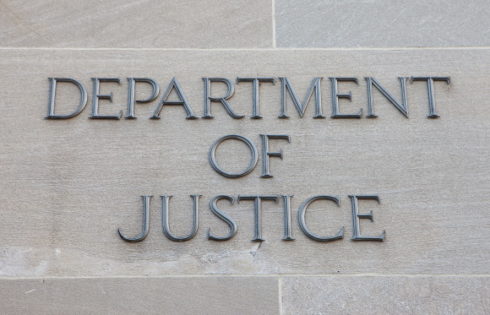
Obama unilaterally imposed decrees; under Trump, the public is welcomed in
The school-choice philanthropist Betsy DeVos* may have entered the Department of Education as the most criticized secretary in recent memory.
But her biggest signature move – a full review of how her Office for Civil Rights investigates Title IX complaints – is getting applause from quarters where her name is normally used as an expletive.
Slate legal and LGBT writer, Mark Joseph Stern, summed up the typical view among his leftist cohort by calling DeVos “not especially qualified to perform any aspect of her job.” He baldly defamed her as having “praised America’s segregated education system” – because she said African Americans were early users (and beneficiaries) of school choice.
But “liberals should hear out her proposals before dismissing them out of hand,” Stern continues:
OCR later claimed that this guidance letter merely “reminded” schools of their Title IX obligations. In reality, however, it imposed stringent new requirements upon schools and sharply limited the rights of the accused. Universities quickly adopted the letter’s procedures, often to disastrous effect. …
The core problem with Title IX, as interpreted by the OCR in 2011, is that it strips any semblance of due process from the accused. … [E]xpulsion is a serious penalty that interrupts students’ lives, tarnishes their academic record, and diminishes their future job opportunities. And the Constitution does afford at least some due process protections for public university students. Shouldn’t Title IX procedures ensure that students and professors accused of sexual misconduct are given a real opportunity to defend themselves?
MORE: Feds will reportedly let colleges use higher evidence standard in Title IX
University of San Francisco Law Prof. Lara Bazelon writes in Politico that “the Obama-era guidelines got the policy wrong. And before we condemn the education secretary, let’s give her a chance to get it right”:
The 2011 guidelines were enforced differently [without required notice-and-comment]: Hundreds of schools were placed under federal investigation for failing to be tougher in handling allegations of campus sexual assault. The result was classic government overreach: heavy-handed “guidance” to schools that was officious, burdensome and ripe for abuse at the hands of scared, ill-trained administrators. …
Because DeVos is a member of the Trump administration—and therefore, a surrogate for the man who famously bragged about sexually assaulting women— it’s easy to focus on the messenger and dismiss the message. But calling out the lack of due process to the accused and insisting on reforms resonates with many people regardless of ideology or political affiliation. … It doesn’t make you a rape apologist to demand a system that gives us more confidence that justice is being done.
For a foreign perspective, The Economist praises DeVos for seeking public input on proposed Title IX regulations (which were “poorly thought out” under Obama) on and denigrates the prior administration for pressuring colleges to “secure convictions in return for public money”:
Opposition to the Obama-era policies is not just a cause for dubious men’s rights activists or alt-right agitators. The most prominent critics have been the faculty of Harvard Law School …
The possibility of racial bias also haunts the proceedings. Observers have noted that black men make up a disproportionate share of the accused. …
Those who want to keep the Obama-era guidelines in place paint the issue as a zero-sum contest between the victims and the accused. They point to decades in which women who had claimed sexual harassment were not believed, and the chronic underreporting resulting from this. But the antidote to that history is not to punish the innocent and the guilty alike.
MORE: DeVos promises to overhaul ‘failed’ Title IX system – through legal means
The Washington Post editorial board said it was expecting “full retreat” from Obama guidance, but DeVos laid out a “deliberative approach” that “was a welcome surprise”:
[L]egitimate questions have been raised about whether there was an overreach by the Obama administration in its prescriptions that resulted in imbalances and injustices. …
In a detailed examination, the Atlantic’s Emily Yoffe argued that many remedies pushed on campuses “are unjust to men, infantilize women, and ultimately undermine the legitimacy of the fight against sexual violence.” Groups such as the American Association of University Professors and the American College of Trial Lawyers have called for changes in the standard of proof used in campus disciplinary proceedings. Professors in the law schools at Harvard University, the University of Pennsylvania and other institutions wrote an open letter about their concern over the absence of due process.
The Boston Globe editorial board said DeVos “deserves a chance to spell out exactly what” she means by saying “one person denied due process is one too many”:
There’s no sympathy here for perpetrators of sexual assault who whine afterwards about how their lives were ruined by what amounts to their own actions. But having a tribunal of college administrators reach conclusions about what really happened late at night in a dorm room or frat house is not the best path to justice. Local law enforcement should be part of any campus policy to address sexual assault.
The editorial board seems confused about what Obama’s guidance imposed, however:
The 2011 directive, issued with the best of intentions by the Obama administration, called for college and university leaders to take action against sexual assault under Title IX, a federal law that prohibits sex discrimination. Many institutions interpreted that to mean that in order to make sure alleged victims were given a proper forum, the accused could be deprived of due process rights. Some institutions lowered the standards of evidence necessary to find a student responsible for sexual assault. Anecdotal evidence emerged to suggest that sometimes students were punished for sexual encounters that were consensual at their start.
Colleges didn’t decide to lower their evidence standards because they misunderstood the guidance: The guidance explicitly mandates the low “preponderance” (more likely than not) standard.
The Department of Education explicitly threatened at least one school that resisted lowering its standard, and another university was punished for letting an accused student introduce exculpatory evidence.
But even though some writers, pundits and outlets are still getting basic details wrong about the Obama administration guidance, it’s nice to see them cautiously coming to rethink their embrace of the ends of sexual-assault response without considering the means.
MORE: Joe Biden compares supporters of due process to ‘Nazis’
IMAGE: a katz/Shutterstock
Like The College Fix on Facebook / Follow us on Twitter







Please join the conversation about our stories on Facebook, Twitter, Instagram, Reddit, MeWe, Rumble, Gab, Minds and Gettr.